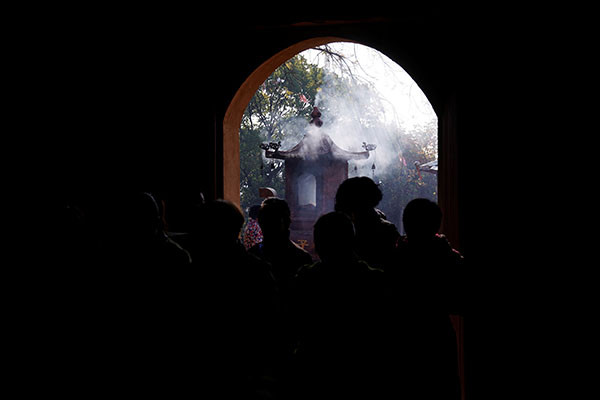A worldwide supplier of Chinese incense has started producing the commodity ahead of the Chinese New Year. This year's festivities were said to have generated great demand for incense that villagers of Yongchun county have rallied up their workers to gather the raw materials in creating incense a month early.
As the Lunar New Year approaches this month of 2020, countless Chinese citizens including travelers would pray in Chinese temples and other landmarks and burn incense during traditional ceremonies. The report claimed that although automation would enable the workers to produce more in a shorter period, the villagers opted to produce earlier in the month instead of bulking up on supply.
According to a report by the South China Morning Post, Fujian, the ancestral craft of creating incense has become an enterprise in Yongchun County that produces about 15 million incense sticks a day. Despite growing demand, the Chinese workers who create the incense insist on handcrafting the product instead of opting for automation.
According to an operator of a family business that supplies incense and produces them in Dapu Town, Mr. Hong Zhongsen claimed that it has been a passed-on tradition of his family to make the commodity. He highlighted that the ancestral craft is a traditional religious culture and that making the same preserves their Chinese practices.
Hong added that Yongchun incense is a unique product from all other incense items due to its special scent and texture. Thus, he said that the villagers opt to prioritize quality over quantity and choose to produce them earlier in the hopes of meeting the growing global demand for incense.
The report revealed that it has been an ongoing belief that Arab traders introduced incense to Yongchun County where, during ancient times, were traded for aromatic spices along with locally-grown bamboo.
At present, Yongchun Country is where 300 manufacturers of incense operate. The industry operates an estimated 30,000 workers who supply the product worldwide. Its locals have claimed that one in every three incense sticks are made in Yongchun and sold around Southeast Asia.
It was also revealed that the production process involves about 18 separate stages. These stages, the report claimed, included the coating of bamboo sticks with fragrant herbs and spices. Afterward, they would be dusted with powders of different shades.
According to Li Xiuzhen, a worker in the vicinity, the sticks would have to be dried by the sun. He revealed that this process is the most trying of the 18 due to changing weather in China.
The report also claimed that there has been an increase in demand for incense in China over the years. Additionally, countries such as Malaysia and Indonesia that are generally Chinese communities including Buddhist Thailand buys their incense from the region.






